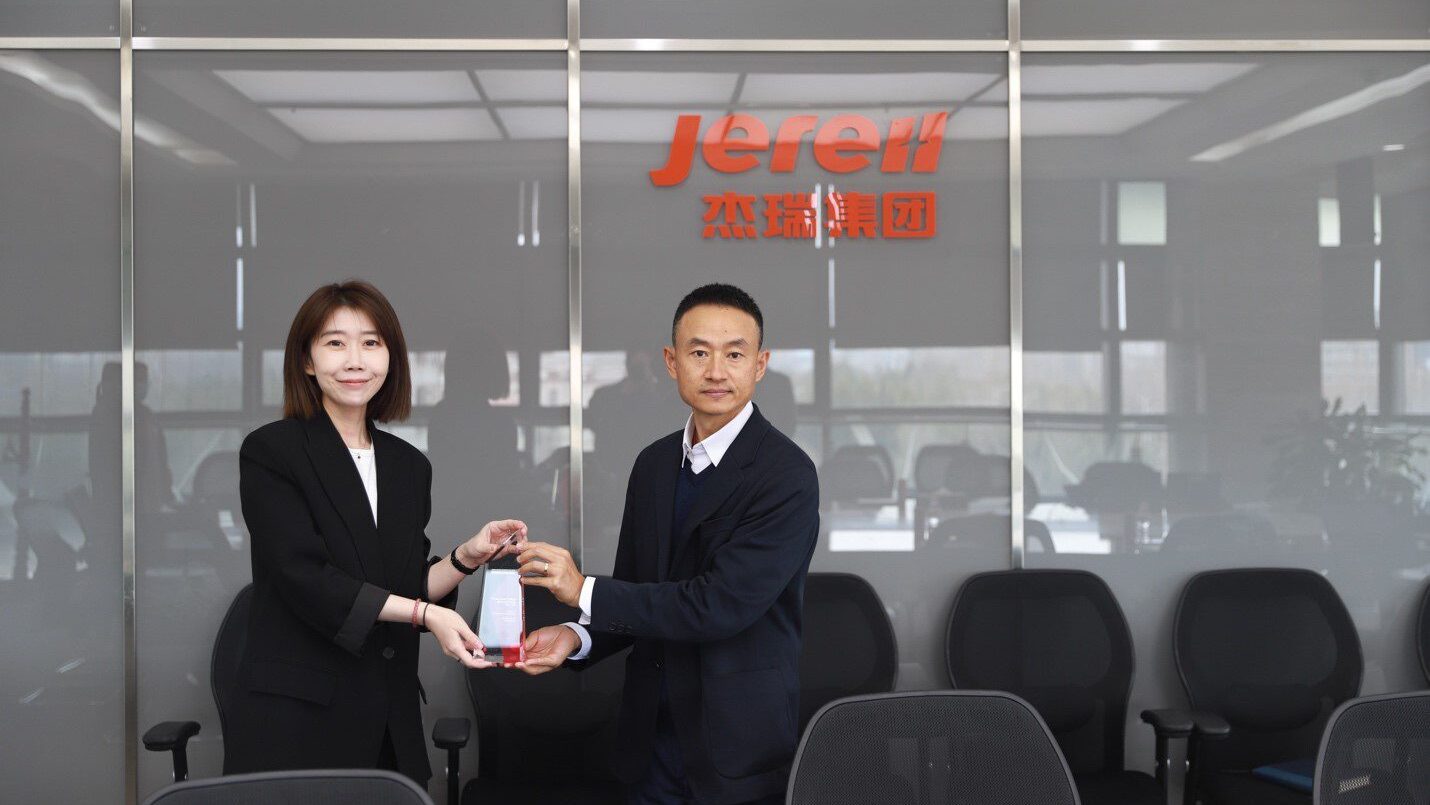Conversation With Steven Zhou: Jereh Group Follows the Trend of Technological Development and Focuses on High-Value Patents

In the field of intellectual property, China has solved the problem of “creating something from scratch” and has entered a critical period of shifting from quantity to quality. In 2024, LexisNexis® Legal & Professional released the “Innovation Momentum 2024: Global Top 100” report, distinguishing small but high-quality patent portfolios from well-maintained large patent portfolios, based on the Patent Asset Index selecting the top 100 companies that are constantly innovating in their respective fields, Jereh Group has been on the list for the second consecutive year.
Steven Zhou is the Chief Intellectual Property Officer of Jereh Group. He has more than 20 years of experience in large enterprises and Fortune 500 companies, holding important positions in well-known enterprises such as ZTE and TCL. Taking this opportunity, LexisNexis®️ Intellectual Property Solutions specially invited IPR Daily to have this conversation with Steven Zhou to talk about Jereh Group’s experience in winning the Top 100 Global Innovators award again.
In this conversation, Steven Zhou explains the secret of Jereh Group’s success in being featured in our patent analytics report “Innovation Momentum 2024: The Global Top 100” for two consecutive years. He elaborated on the company’s strategies in patent landscape, artificial intelligence application and global development, emphasizing the importance of enterprise culture as core competitiveness. Steven Zhou believes focusing on market competition and paying attention to the commercial value and litigation value of patents are the keys to Jereh Group’s innovative achievements.
The following is a transcript of the conversation:
IPR DAILY: Jereh Group has won the Top 100 Global Innovative Companies award for two consecutive years. What kind of management experience do you have in terms of IP?
Steven Zhou: I am also a little surprised that Jereh Group has won the award for two consecutive years because we do not consider any awards as the starting point for our work. We have always advanced our work based on the competitive situation faced by our industry. More and more Chinese companies are beginning to realize the importance of intellectual property rights, especially patents, in business development. The reason why we can compete with the world’s leading companies is that our level of innovation is as good as theirs and even better in some areas. No other company can be found in the North American, Russian or Middle Eastern markets that can achieve this level. I think the reason Jereh Group won this award is because we did what we should do: focus on market competition, develop, apply for and protect innovations that can bring us competitiveness. At the same time, more and more Chinese companies are heading in this direction, which is the path that needed to be adhered to participate in global competition.
IPR DAILY: How do you think future technology development trends will affect Jereh Group’s patent and intellectual property management strategies? Based on these trends, will Jereh Group’s strategy adopt these changes?
Steven Zhou: The future technological development trend can be viewed from two aspects. The first is industrial intelligence, including the huge impact of large language models on the industry. Our oil and gas extraction process, including equipment use, monitoring, and safe operations, will be intelligent and networked. Only by seizing this development window can we occupy the commanding heights in the future. We have also seen that IP risks in the communications field may be transferred to more traditional industries through intelligence. For example, after automobiles develop to the intelligence stage, patentees of standard essential patents begin to charge automobile manufacturers. This may also be our future situations that will be faced.
In addition to the trend of intelligence, we have also noticed the application prospects of artificial intelligence technology in the field of intellectual property. Artificial intelligence has broad practical space, whether for patent searching, analyzing and drafting or for the patent agency. For Jereh Group, we need to follow the trends of the times, seize opportunities, upgrade tools and work processes, and better use tools to enhance intellectual property competitiveness.
IPR DAILY: How do you evaluate the quality of your patent portfolio, and what strategies do you use to maintain a high-value patent portfolio?
Steven Zhou: First of all, I think patent quality and value are not completely equivalent. Patent value needs to be observed from a competitive perspective. We also strongly agree with Huawei’s Dr. Song Liuping’s point of view that is, patents that can encircle competitors are good patents. Compared with the patent scale of some industries, which often include thousands or even tens of thousands of patents, the scale of Jereh’s patents is not large. However, we noticed that most of our major competitors’ patent portfolios are in the order of several hundred. Therefore, relatively speaking, Jereh Group’s patent portfolio still has a certain leading advantage. Of course, for us, the most important thing is to create patents that can fight (litigation). We will also prune those patents that are not very useful in a timely manner. This is a focusing process, which means concentrating resources and energy on patents with litigation value. This kind of patent upgrading and management process has always been the focus of our work.
In fact, Jereh Group is dealing with some patent litigation. The essence of patents is to reflect market competition. Therefore, compared with using patents to obtain direct benefits, we value the contribution of patents to market value more.
When Jereh Group was first established, it was not even involved in the oilfield equipment business. Instead, it started as a small trading company. Now some of our equipment has occupied a large domestic market share. We also have a relatively leading market position in overseas regions such as the United States and the Middle East. From the company’s overall development perspective, the continuous innovation process is why we continue to lead the market, meet customer needs and win recognition.
We believe that Jereh Group’s core competitiveness does not lie in the technology, market or intellectual property rights that we already have certain advantages over. The core competitiveness of Jereh Group is our corporate culture. We believe that the healthier Jereh’s corporate culture is, and the more we practice it, the more competitive we will be. We also believe that Jereh Group’s vision, i.e., to become a company respected by people worldwide, can be realized with our innovative capabilities.

